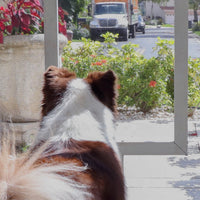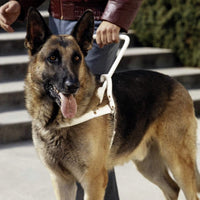Subtotal
CAD $0.00
or
As a student in college one of the hardest things I learned was when dealing with someone or something with a disability; feeling sorry for them, or just wanting to help them because of it, is exactly what they don't want. There is a fine line between helping and insult, and dealing with dogs who have lost their sight is no different. If you were to ask Karen Onstott at the Montgomery County Animal Shelter her thoughts on blind dogs she would respond, I wish people didn't feel sorry for them … they adapt to their surroundings and situations
much easier and happier than you might think.
Larry Alton has been fostering blind dogs for four years now. If you happen to visit Cattail Park don't be surprised if you see Nina, Graham, Lili, and River having a blast running about where onlookers are often amazed when they find out they are all blind.
Like humans, there is a vast difference between dogs who were born blind opposed to those who lost their sight after birth. Graham lost his site at birth so he is completely fearless. He will run around in open spaces regardless of what obstacles might pop up whereas Nina lost her sight 3 years after birth so she is quite the opposite. She knows what can be out there and as a result is very cautious. She uses her paws to sense the terrain much like a blind person would use a stick. These Dogs also use their bark. They have developed many different types of barks all meaning something different for those who know the difference and what to listen for.
These dogs are really just like regular dogs, they can do all the things seeing dogs do. If you want to learn more or just help out fostering dogs in your neighborhood, get in touch with your local animal shelter, I am sure they could use the help.


Researchers at North Carolina State University have developed a device that allows people who are blind to monitor their guide dogs, in order to keep tabs on the health and well-being of their canine companions.


